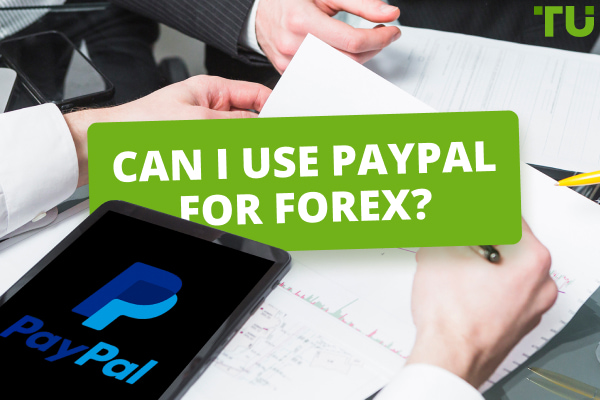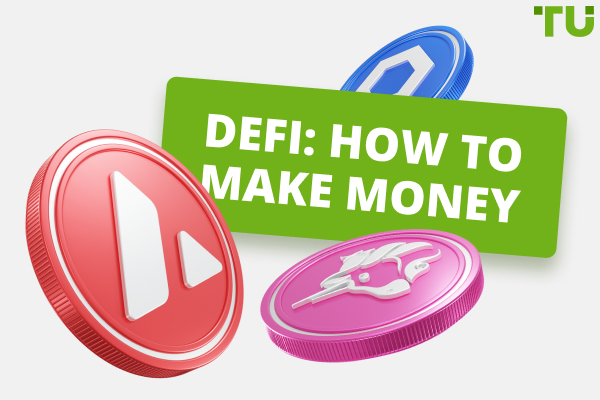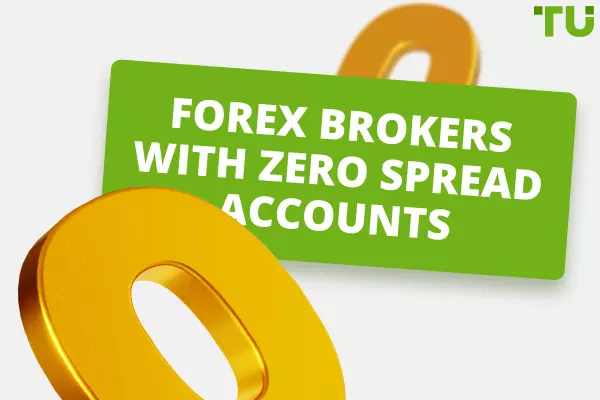How Do Forex Scams Work?
Forex scams are becoming increasingly common and can be challenging to spot. They usually involve promises of low-risk, high-return investments, and they often use fake testimonials to lure in victims. If you're thinking about investing in the forex market, it's important to be aware of these scams and how they work. So, the experts at TU have prepared this review on how Forex scams work and how can you avoid them.
Forex scam explained
Forex trading is the process of buying and selling currencies in the foreign exchange market. This market is important for a country's economy because it allows businesses to buy and sell goods and services in different currencies. With the amount of attractiveness this market holds, it is natural for it to have a lot of scammers. In this article, you will learn how to spot a forex scam and how you can protect yourself from being scammed.
How do Forex scammers work
According to experts, Forex scams often use false advertising and high-pressure sales tactics to convince people to invest money. They may also use fake testimonials from satisfied customers to make their case.
Research suggests that Forex scams typically involve convincing people to invest in a trading system or software that guarantees profits. The scammer usually promises a very high return on investment and may even offer to pay a commission for every referred person. They may also claim that the system is completely automated so that anyone can use it, even with no experience in the Forex market. In reality, these systems are often worthless, and the people who sell them usually make the most of their money by selling the software rather than any profits they may earn from trading.
Main types of Forex scammers
Forex scams are becoming more and more common. They come in many different forms, but all have the same goal: to take your money. TU experts have identified the most common types of forex scams as below:
1. Ponzi schemes
Ponzi schemes are a type of forex scam in which the scheme's promoter entices investors to invest their money with the promise of high returns. The promoter then uses the money from new investors to pay the promised returns to the earlier investors instead of investing the money in the underlying forex market. Eventually, the pyramid scheme collapses when there are not enough new investors to keep it going.
2. Boiler room schemes
Boiler room schemes are a type of forex scam in which unethical brokers use high-pressure sales tactics to convince investors to buy currencies, commodities, or other financial instruments they do not need, want, or understand. These schemes often target investors who do not have a lot of experience or knowledge in the financial markets, and they can be very difficult to spot.
3. Signal sellers
Some signal sellers are considered scammers as they typically sell signals that are not backed by any real trading strategy or system. They often charge high fees for their services, and may even encourage traders to use leverage to increase the potential profits that can be made from following their signals. However, because the signals are not based on any solid trading strategy, they can often lead to losses for traders who follow them.
4. Managed account scams
Managed account scams are a type of forex scam where a scammer will offer to trade a forex account on behalf of the investor. The scammer will then take the money from the account and use it for their own personal gain, or outrightly run away by withdrawing them one way or the other.
5. High-yield investment programs (HYIPs)
High-yield investment programs (HYIPs)s are a type of forex scam in which the promise of high returns is used to lure investors into parting with their money. HYIPs typically offer investors the opportunity to invest in foreign exchange, stocks, or other assets and receive a high rate of return on their investment. However, most HYIPs are nothing more than Ponzi schemes, and the investors who put their money into them ultimately lose all of their money.
Is Forex a scam itself?
There are many reasons why forex trading (as a whole) is not a scam. First, analysts suggest that the forex market is the largest financial market in the world, with a daily turnover of over $5 trillion. This means that there is a huge amount of liquidity in the market, which makes it difficult for a handful of scammers to manipulate prices.
Second, forex trading is regulated by a number of financial authorities around the world, such as the FCA, CySEC, etc. These organizations have implemented several measures to protect investors from scams, such as introducing rules on leverage and margin requirements.
Finally, many reputable forex brokers provide their clients with access to the forex market. These brokers must meet strict financial regulations and are subject to regular audits by financial authorities.
How to avoid getting scammed in Forex?
The best way to avoid getting scammed in forex is to do your research and work with a reputable broker. Experts at TU suggest using the following checklist to avoid getting scammed in forex:
1. Avoid high-risk brokers
The main reason to avoid high-risk brokers is to protect your investment. These brokers often engage in risky practices that can lead to losses for their clients. They may also charge higher fees and commissions, which can affect your profits. High-risk brokers may also offer higher leverage, which can lead to more significant losses if the market moves against you.
2. Find out if the broker is regulated
There are a few key reasons why it is vital to only work with regulated brokers in forex. First, regulated brokers must follow certain rules and regulations set by the regulatory body, which helps protect investors. Second, regulated brokers are typically more trustworthy and transparent than unregulated brokers. Finally, regulated brokers usually offer higher customer service and support levels than unregulated brokers.
3. Watch out for shady promises
Always be skeptical of any offer that seems too good to be true. Do your research to verify the authenticity of any claims made by a potential forex broker or trader before investing any money.
4. Read the terms and conditions
When you are trading in forex, you are entering into a contract with another party. This contract will outline the terms of your trading, including the amount of money you are willing to risk, the amount of money you are ready to pay if you lose, and the length of time you are willing to keep the contract open. By reading the terms and conditions of your agreement, you can gain confidence that you are not getting scammed.
5. Verify that the broker's website is secure
By verifying that a broker's website is secure, you can be sure that your personal and financial information will not be compromised.
Regulated Forex brokers

FAQs
How can I verify the authenticity of a broker?
You can verify the authenticity of a broker by reading reviews on trusted websites and platforms. Also, you can check whether the broker is registered with the country's regulatory body.
How can I find a good forex broker?
There is no definitive answer to this question. There are many reputable forex brokers, and it ultimately comes down to finding one that best suits your individual trading needs and preferences. First, try researching online and reading reviews from other traders to get some insights into which brokers they recommend. Once you've narrowed down your options, you can open up a demo account with a few brokers to test their platforms and see which you like best.
Should I share my personal information with a broker?
No, you should not share your personal information with a broker beyond what’s required by regulation.
Can I make money trading forex?
Analysts suggest that you can make money trading forex, but it is not easy. You need to have a solid understanding of the market and a good trading strategy. There are a lot of risks involved with trading forex, so it is essential to do your research before getting started.
Team that worked on the article
Chinmay Soni is a financial analyst with more than 5 years of experience in working with stocks, Forex, derivatives, and other assets. As a founder of a boutique research firm and an active researcher, he covers various industries and fields, providing insights backed by statistical data. He is also an educator in the field of finance and technology.
As an author for Traders Union, he contributes his deep analytical insights on various topics, taking into account various aspects.
Dr. BJ Johnson is a PhD in English Language and an editor with over 15 years of experience. He earned his degree in English Language in the U.S and the UK. In 2020, Dr. Johnson joined the Traders Union team. Since then, he has created over 100 exclusive articles and edited over 300 articles of other authors.
The topics he covers include trading signals, cryptocurrencies, Forex brokers, stock brokers, expert advisors, binary options. He has also worked on the ratings of brokers and many other materials.
Dr. BJ Johnson’s motto: It always seems impossible until it’s done. You can do it.









